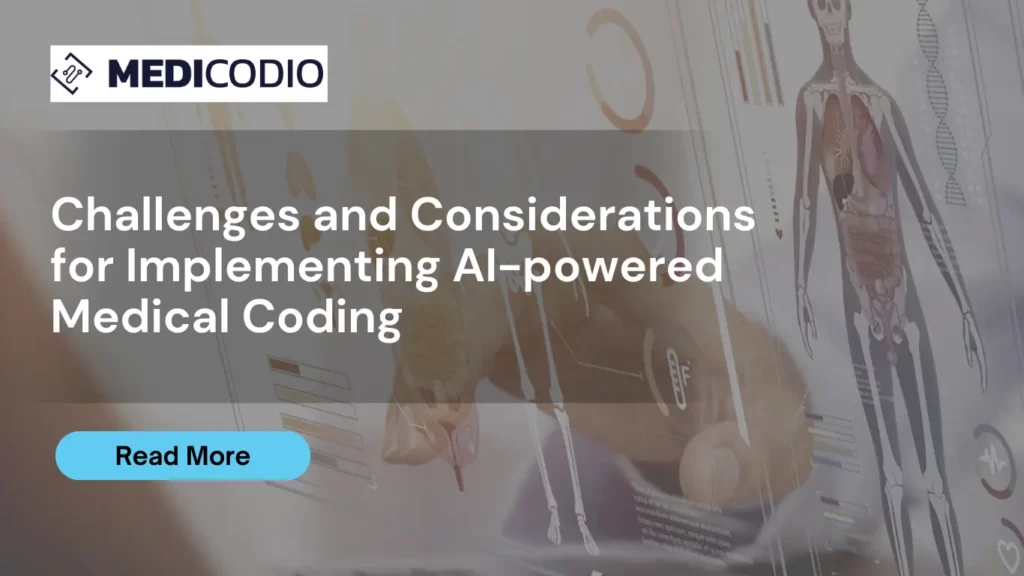With the increasing significance of AI, the healthcare industry is moving towards an era of AI medical billing and coding automation. But like any other technology, AI integrations also come with their challenges.
Here are some common challenges that RCM companies and hospitals face during AI medical billing and coding automation.
#1 Bringing Data Standardization for Accuracy
The integration of AI-powered medical coding solutions with existing systems like electronic health records (ERH) is crucial for lifting accuracy in AI coding. However, due to the fragmentation of medical data, it is hard to obtain “Clinically-Approved” data.
Thus, standardizing medical data and collection techniques for a successful AI integration is involuntary. Effective collaboration between healthcare providers and IT departments is necessary for the success of AI in medical coding, to bring accurate statics.
#2 Ensuring Data Privacy and Security
It is a priority for healthcare organizations to protect sensitive patient information to avoid any misuse or negative consequences.
The solution is implementing best practices like strong data encryption, regular security audits, and validation of the AI solution used for medical billing.

#3 Ethical Concerns around AI in Healthcare
The use of AI in healthcare raises important ethical questions like the potential for bias based on gender, race, age, etc. in medical coding. Due to bad datasets, AI algorithms are prone to amplifying the biases present in the data used to train them, leading to discriminatory outcomes.
To resolve this, evaluate medical data, track its outcomes and performance, and put in place transparent and accountable processes for decision-making.
#4 Change Management that comes with new technological integration
Before bringing AI medical billing and coding automation, check if your organizational capabilities, climates, cultures, and leadership are aligned to adapt to the change. This also includes aligning your team to move from medical to automated systems and all other related departments to embrace this change.
#5 Methodological Flaws in AI-Researches
The need for prospective and continuous research is a major challenge for implementing AI in healthcare.
Most of the research on AI-powered solutions in the healthcare industry is based on data considered to be primitive by experts. To get real-world diagnosis and accuracy in coding, there is a need for the study of the latest medical datasets. Physicians need to calibrate the AI outcomes, with their results, to ensure the accuracy of AI diagnosis.
Overcoming challenges through best practices:
The steps to successful AI implementation are pilot testing, monitoring and evaluation, and having a maintenance plan. Evaluate your organization’s needs, set clear goals, and involve all stakeholders in decision-making. Also Consider compatibility with existing systems.
Final word:
Medical machine learning and AI medical coding have revolutionized the healthcare industry, but careful implementation is the key to the successful usage of AI in healthcare/
References
“AI in Healthcare: Opportunities and Challenges.” World Health Organization, 6 July 2020, www.who.int/campaigns/world-health-day/world-health-day-2020
“The Integration of Artificial Intelligence into Healthcare.” Frontiers, 6 Oct. 2020, www.frontiersin.org/articles/10.3389/f
Ensuring Data Privacy and Security in AI-powered Medical Coding. (n.d.).https://www.healthit.gov/topic/securitymed.2020.576116/full.





